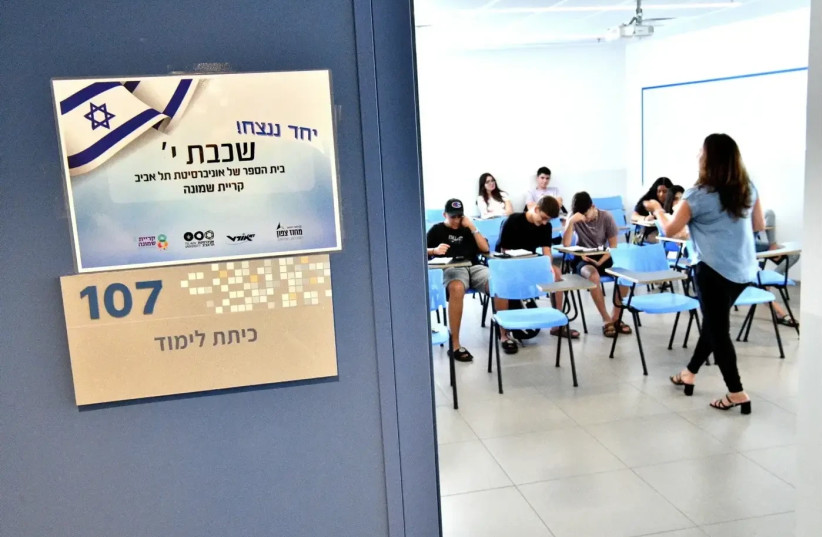It has been several weeks since children in quieter areas of Israel have resumed school, beginning with remote instruction and gradually transitioning to a mix of remote and in-person classes. As time goes on, they are gradually settling into a school routine, receiving homework assignments, and preparing for tests. For parents, it can be difficult to comprehend how they can concentrate on studying amidst the pressures of war, or how they can transition from drills to solving equations or learning a foreign language.
In this state of war, we yearn for stability and routine, but navigating the reality of both together is emotionally challenging. Each day becomes a bit more normal, yet we remain on edge, constantly attuned to every little sound and with our eyes to the news. The demands and vigilance wear us down.
However, the duration of this situation remains uncertain, and fixating on when it will end further depletes our mental energy. Establishing a routine is crucial, as the alternative is less favorable. Returning to our responsibilities and activities provides us with a sense of security on multiple levels. Thus, an emergency routine is the best option available to us right now.
For children, the very act of studying fosters resilience when facing difficult external events. As adaptable beings, humans possess the capacity to adjust, and children are more adept at this than adults. Like us, they experience anxiety about potential alarms or worsening conditions. However, they also play, fight, and laugh.
Amidst the turmoil, they manage to forget their circumstances and focus on everyday matters such as what to wear, social gatherings, and arguments with friends. This ability to adapt is both positive and healthy. Adaptation is strength, and children possess more strength than we often realize. Our confidence in their abilities and resilience, alongside our support, enables them to navigate these challenges.

Routine gives children a sense of stability
A routine instills confidence in children by providing a sense of structure and familiarity that safeguards them on a daily basis. They need to understand that there are adults in positions of authority who look out for them.
However, parents and teachers must be more attuned and flexible to their circumstances. We must acknowledge that their attention spans may be shorter. It is crucial to recognize that each child is unique and has different needs. Schools and teachers are tasked with catering to numerous children and their diverse requirements.
As parents, our role is to assess our child's specific situation, identify their true needs, and help align them with the education system, potentially by seeking advice from educators or counselors. Some children experience stress even on normal days, and this stress is magnified in the current circumstances.
Others may have endured past traumas, such as the loss of a family member, or may have struggled emotionally during the COVID-19 pandemic. These children may be more vulnerable to the effects of war, and it is important for us to pay attention and seek counseling or support as necessary.
Some children demonstrate their distress through noticeable behavioral signs, such as refusing to sleep alone or experiencing bedwetting. Others may exhibit increased restlessness, hypersensitivity, or a propensity for outbursts and aggression. Some children may express their difficulties more subtly, withdrawing from social interactions. It is crucial for us to be mindful of these changes and discern whether they are coincidental or linked to the war situation.
Parents, who are deeply concerned about the impact of war on our children, must stop and seek guidance to prevent further escalation. Therefore, it is essential for us to be vigilant, sensitive to their needs, and provide support while equipping them with coping mechanisms. Establishing a routine and nurturing their belief in their own abilities to overcome challenges are crucial steps in this process.
Michal Ben Ray is an educational psychologist.
